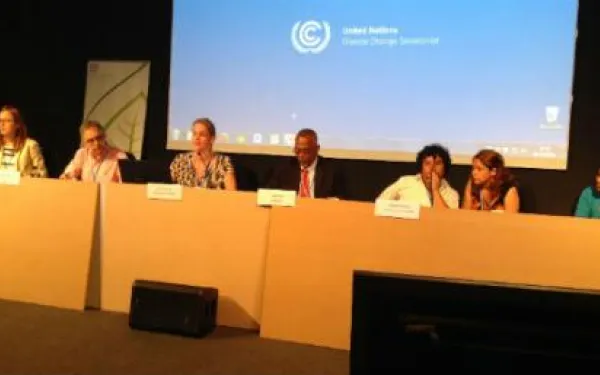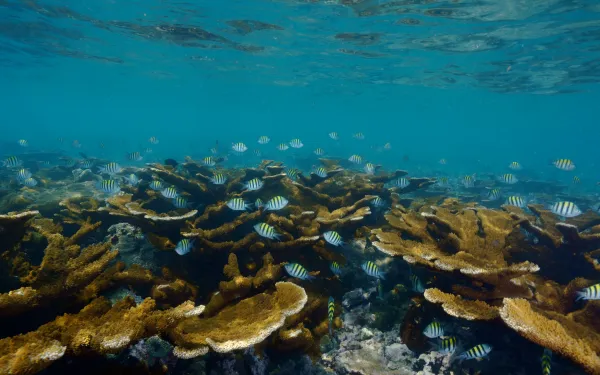AIDA Attends Ramsar COP for Wetlands Conservation
In regions across the Americas, water is becoming an increasingly scarce resource. Baja California and other parts of Mexico are experiencing water shortages. Washington, Oregon and California are confronting the worst drought in history. The United Nations Food and Agriculture Organization says that, by 2025, at least 1.9 billion people will live in countries or regions facing an absolute shortage of water. In this situation, it is urgent to preserve wetlands – the natural ecosystems that provide fresh water, help to replenish groundwater aquifers, and nurture aquatic wildlife. Wetlands include páramos, mangroves, rivers, lakes and coral reefs. At AIDA, we’re committed to protecting these unique ecosystems. We work to strengthen the Ramsar Convention, an intergovernmental treaty that mandates the conservation and wise use of wetlands worldwide. The Convention’s member nations are obligated to ensure that wetlands in their territories conserve important ecological characteristics, which provide clean water and myriad benefits for humanity. To ensure compliance with the Convention’s obligations, nations convene every three years at the Conference of Parties (COP), the Convention’s primary organ. The twelfth conference (COP12) – focusing on “Wetlands for Our Future” – will take place June 1-9 in Punta de Este, Uruguay. One of the functions of the COP is to consider information presented by organizations like AIDA to improve each country’s compliance with the Convention. AIDA is participating in COP12 as an observing civil society organization, presenting comments on draft resolutions to be discussed at the conference. These resolutions provide solutions to the challenges nations encounter when implementing the treaty, and ensure that governments make clear commitments to conserve important ecosystems. We will submit comments on three of the most important draft resolutions: The Philippines calls on the Convention to propose economic tools to reduce the risk of natural disasters. Thailand proposes to analyze the effectiveness of mechanisms used to evaluate the management and conservation of sites the Convention considers Wetlands of International Importance. Mexico proposes that countries identify the possible negative impacts that infrastructure projects have on water, biodiversity and wetland services. AIDA will also make specific recommendations to protect wetlands in Colombia, Mexico and Panama. We will advocate the inclusion of two sites on the Montreux Record, a list of wetlands that receive international priority, and for which a country may obtain technical assistance and financial resources for conservation. The sites AIDA proposes to add are the Bay of Panama Wetlands, threatened by the construction of tourism infrastructure, and the Veracruz Reef System National Park, endangered by the expansion of the Port of Veracruz in Mexico. Finally, we will ask the Secretariat of the Convention to make advisory visits to Colombia to learn about the situation of the country’s páramos, at risk from large-scale mining projects, and of Ciénaga Grande de Santa Marta, an important site affected by unsustainable agriculture. Following these visits, the Secretariat may make recommendations for Colombia to improve management of these sites. We invite you to follow our work during the COP12 of the Ramsar Convention on our website, Facebook and Twitter!
Read more

